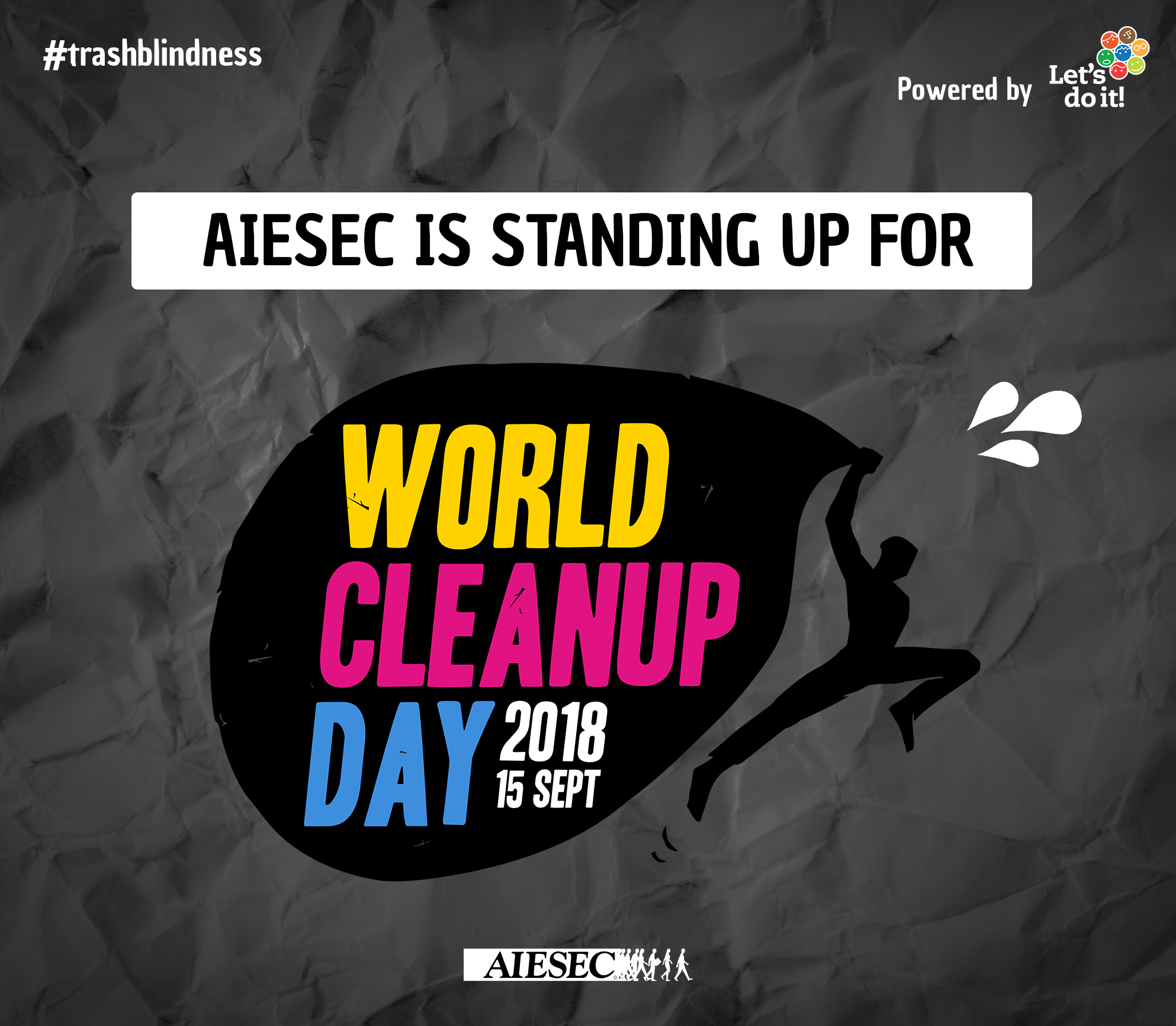Rotterdam, Netherlands, August 26, 2018– AIESEC, a global youth-run organization activating youth leadership since 1948, is promoting The World Cleanup Day day across 120 countries and territories and encouraging everyone to join to raise global awareness and implement lasting changes to end the global waste epidemic.
On World Cleanup Day, taking place on 15 September 2018, millions of people in 150 countries will stand up against the global mismanaged waste problem by cleaning up roads, parks, beaches, forests, and riversides. Thousands of communities will act as one, creating a powerful ‘green wave’ spanning from New Zealand to Hawaii.
The aim of the initiative is not just to move towards better waste handling, but also to raise awareness both locally and globally about the severity of the situation. And more importantly – to support and connect a new generation of community leaders ready to act together to find lasting solutions.
World Cleanup Day is a civic action driven by determined people and empowered by technology. During the lead-up to 15 September, the global community is using technology to map the locations, amounts, and types of waste that need to be cleaned up and managed. The World Cleanup app enables anyone to quickly map the waste in their neighborhood, creating valuable data for cleanup organizers and visualizing the mismanaged waste problem on both local and global level. The app also lets users create a cleanup event in a certain area for 15 September, making them responsible for preparing and executing the specific event, including finding the best way to manage the collected waste. The challenge of taking care of the collected waste on 15 September is huge, especially in places without a waste management system in place.
Waste that is created in the streets too often ends up in our oceans. It is estimated that 80% of the waste floating around in the oceans is mismanaged waste carried to the sea through our beaches and waterways. Therefore, working together on land with local leaders, governments, and organizations is the first urgent step in protecting the nature in both water and on land.
The organizer of World Cleanup Day is civic-led mass movement Let’s Do It World! It was born in Estonia in 2008 when 50 000 people cleaned up the entire country in just five hours. Since then, the action model—one country in one day—has spread around the world, creating one of the fastest-growing grass root movements in history. To date, nearly 140 countries and 20 million people have already joined the efforts to clean up illegal waste in their neighborhoods.
The year 2018 marks 100 years since the founding of the Republic of Estonia. World Cleanup Day 2018 is Estonia’s biggest gift to the world on its 100th anniversary. More information about the centenary events can be found at www.EV100.ee.

The not-so-fun facts:
You can find out more information on www.worldcleanupday.com and on https://www.facebook.com/worldcleanupday2018/.
About AIESEC:
AIESEC (aiesec.org) is a global organization striving to achieve peace and fulfillment of humankind’s potential by activating leadership qualities in youth through learning from practical experiences in challenging environments. With offices in more than 122 countries and territories, AIESEC is a non-political, independent, not-for-profit organization run by students and recent graduates of institutions of higher education. Around the world, AIESEC partners with more than 2,600 universities and 8000+ organizations to facilitate professional and personal development experiences for young people across the globe. AIESEC has a consultative status with the United Nations Economic and Social Council (ECOSOC), is affiliated with the UN DPI, is a member of ICMYO, and is recognized by UNESCO.
For more information, please contact:
Agnieszka Okroj, AIESEC, agao@ai.aiesec.org
Tiina Urm, Let’s Do It! World, tiina.urm@letsdoitworld.org
6
Leave a Reply